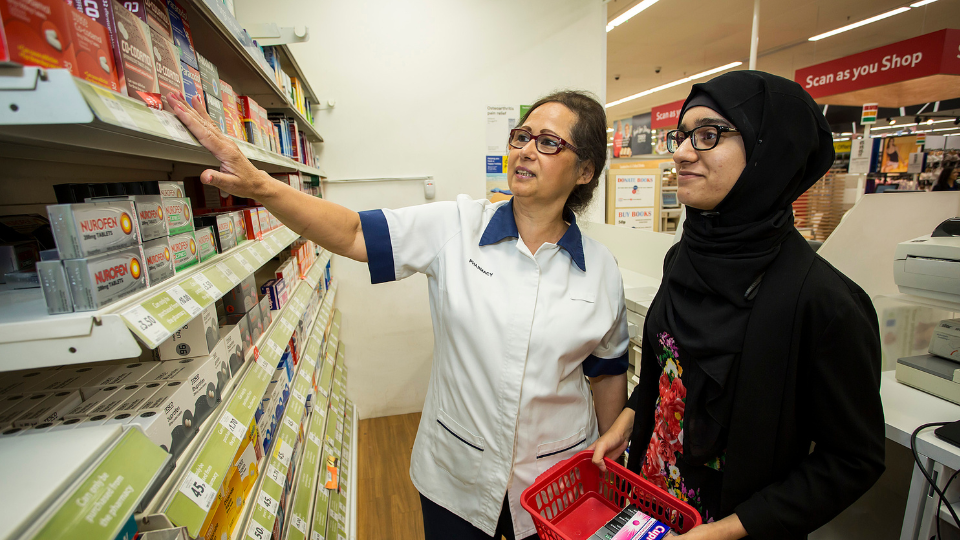View all Podcasts
Unlocking academic outcomes through improved oracy skills with Oracy Cambridge’s Alan Howe, and edt’s Dr Nicky Platt and Dr Jim Rogers
Fascinating findings from England's National Tutoring Programme with ImpactEd Evaluation's Holly Waddell, and edt's Laura Fox and Fiona Rutherford
How global education benefits from international testing with former schools minister Nick Gibb, edt's Dr Richard Churches and CfBT Brunei's Dr Louise Pagden
The universal benefits of developing adult skills with WEA’s Chris Morgan and edt’s Kiri Baxter
Tackling the climate crisis at an educational level with Kulima’s Dr Katharine Vincent and edt’s Donvan Amenya and Rachael Fitzpatrick
How to improve early years education for all with Busy Bees Nurseries' Gill Jones MBE, early years consultant Jan Dubiel, and edt's Lyn Challender
How to deliver education reform at scale with The Brookings Institution's Brad Olsen and edt's Elizabeth Ogott and Clare Buntic
Exploring school improvement through external review with Noelle Buick and Valerie Dunsford
The nuances of applying research to real world teaching with Cat Scutt, Emma Gibbs and Dr Richard Churches
Strengthening the connection between young people and their futures with Oli de Botton, Mark De Backer & Wendy Phillips
Harnessing the collective power of peer review with Maggie Farrar and David Godfrey
Achieving a gender-responsive pedagogy with Nora Fyles, Ruth Naylor and Rosa Muraya
The ‘golden thread’ helping to retain ECTs with Sam Twiselton OBE & Dr Nicky Platt
How leaders of learning are improving education in Rwanda with Amy Bellinger and Jean-Pierre Mugiraneza
View all News
Remembering Neil McIntosh CBE, former Chief Executive of CfBT Education Trust (now edt)
Boost in apprenticeship awareness for young people in London as edt to deliver Greater London Authority’s new AIM programme
Edt supports UNICEF to provide continuous access to education for children in Gaza
Boosted careers support in England as edt to deliver Connect to Work programme
Edt partners with UNICEF and Rwanda’s Ministry of Education to develop accelerated learning curriculum framework for 1.1 million out-of-school youth
Future Teaching Scholars demonstrates subject specialist teacher retention, amidst national STEM skills shortages
The Roger Federer Foundation partners with edt to scale up foundational learning initiative in Zimbabwe
edt and Stichting leerKRACHT launch strategic partnership to advance collaborative school improvement in the Netherlands
Learning to change the world: a refreshed edt
Department for Education praises edt’s delivery of the Early Years Professional Development Programme
Ofsted commends edt for Outstanding delivery of Early Career Framework, citing commitment to quality as “shining strength”
Early Years Professional Development Programme evaluation report shows positive impact on knowledge, confidence, and retention
TEACH programme's new social and emotional learning initiative welcomes edt as principal implementing partner
Skills Bootcamps in Early Years achieves ‘significant progress’ rating from Ofsted
Global Dialogue convenes international education community to discuss transforming education systems
Positive impact of school-based tutoring revealed in ImpactEd’s Final Evaluation Report of the National Tutoring Programme
Edt to support school improvement in Leicestershire through new local authority partnership
Edt reaccredited with matrix standard for information, advice and guidance services
The Rt Hon Nick Gibb praises 'The International School @ ParkCity' in Kuala Lumpur for ISQM gold-rated standards following visit alongside edt
Early childhood education gets a boost as 10,000 practitioners register for edt’s Early Years Professional Development Programme
Schools Partnership Programme celebrates ten years of school improvement with further expansion in North Wales
Edt to deliver new Skills Bootcamps in Early Years in London to support city’s skills drive
Edt to provide expertise on new INSPIRED programme to improve foundational learning in Kenya
Edt joins conversation on the next steps for early childhood education in England at the Westminster Education Forum
Edt welcomes the government’s Skills England announcement
Edt provides technical assistance through SCALE programme, to improve foundational learning outcomes
Edt sponsors Education World Forum (EWF) 2024
West Yorkshire key area for two new employability initiatives headed by edt
Edt to manage technical assistance hub funded by the Gates Foundation
Edt partners with Cornwall and Isles of Scilly Councils to support refugees to find work in the UK through new programme
ImpactEd’s Annual Evaluation Report of the National Tutoring Programme highlights key tutoring recommendations
Promising practices for teacher management in refugee settings identified as five-year research project draws to a close
Edt partners with Cornwall Council to support disadvantaged young people on Yep! Youth Engagement Programme
Edt to help more individuals upskill to enter England’s early years sector through new Skills Bootcamps in Early Years
SPP and UCL knowledge exchange brings together European partners to peer review
Edt partners with Sharjah Private Education Authority (SPEA) to conduct inspections for 64 private schools
Edt celebrates impact on education in Ethiopia as the TARGET programme draws to a close
Edt presents findings on refugee teacher professional development at the Global Refugee Forum 2023
Edt reaches 12.3 million learners globally in 2022-23
Edt pledges commitment to refugee learners
Edt attends the Royal Foundation Centre for Early Childhood's ‘Shaping Us’ National Symposium
Teaching and thriving in refugee settings: creating an enabling environment
Andrew Mitchell, UK Minister of State for Development and Africa, applauds BLF’s impact on Rwanda’s education sector at Girls’ Education Symposium
Edt named as provider for new NPQ in Leading Primary Mathematics
Edt and IIEP-UNESCO bring ministers together for key knowledge workshop in Ugandan refugee settlement
Dan Sandhu to join Education Development Trust as Chief Executive Officer
Edt’s Building Learning Foundations team co-hosts successful East Africa Learning policy Forum
Edt at the UK’s All-Party Parliamentary Group on Women and Work
UK Special Envoy on Gender and Equality visits our Building Learning Foundations girls’ club in Rwanda
St Andrew’s School wins award for ‘Best Education Environment’
Edt at the Education World Forum 2023
Building Learning Foundations programme awarded A+ rating by FCDO
Edt Early Career Framework OFSTED Report published
Celebrating ten years of the Girls’ Education Challenge in Kenya
Edt welcomes ministry officials to key workshop on refugee teacher management in Kenya
Edt and ImpactEd publish report into benefits of school-led tutoring
Unleashing greatness: EEF's three-year evaluation of Schools Partnership Programme
Focusing on equity in leadership and careers aspiration on International Women’s Day
Notice to the public
‘Systems Thinking’ – new book released by NORRAG features edt research
Remembering Sir Jim Rose
Carbon Reduction Plan details edt’s journey to UK Net Zero emissions
Edt accredited as a Disability Confident Employer
Impressive results published from the Early Years Professional Development Programme
Event - Leading teaching and learning together: the role of the middle tier
Edt reaches 9.2 million learners globally in 2021-22
Edt expertise supports FCDO paper on climate crisis and girls’ education
Contract win for next phase of Early Years Professional Development Programme
Edt maintains consistent ‘excellent’ Merlin Standard for work with supply chains
Executive leaders learn and collaborate at NPQEL residential conference
Edt shares education expertise at the Schools and Academies Show
Celebrating ‘my health, my dignity’ on International Day of the Girl Child, 2022
Edt welcomes Development Director, FCDO, to TARGET school
We teach here - a series of films
Edt to deliver new National Careers Service contract
Celebrating the completion of the successful Early Years Professional Development programmes
School leadership event in Sierra Leone draws experts across Africa
Enhancing our National Professional Qualifications (NPQs) and Early Career Framework (ECF) programme
New Careers Guidance programme launches in Dorset
UK Prime Minister Boris Johnson visits BLF work in Rwanda
BLF Rwanda hosts events to celebrate International Day for Women in Mathematics
Rwanda programme boosts female leadership in primary schools
Edt hosts National Symposium on Girls’ Education
Edt selected as lead provider for two new National Professional Qualifications
Department for Education white paper amplifies commitment to teacher professional development
Government praises progress under Early Careers Framework and National Professional Qualifications
EDT hosts Delivery Partner National Conference on teacher development
Southeast Asia leaders and UK experts examine education disruption
International Women’s Day 2022: #BreakingtheBias in education
A look at the facts for National Apprenticeship Week 2022
Panel discussion: teacher management in crisis contexts






